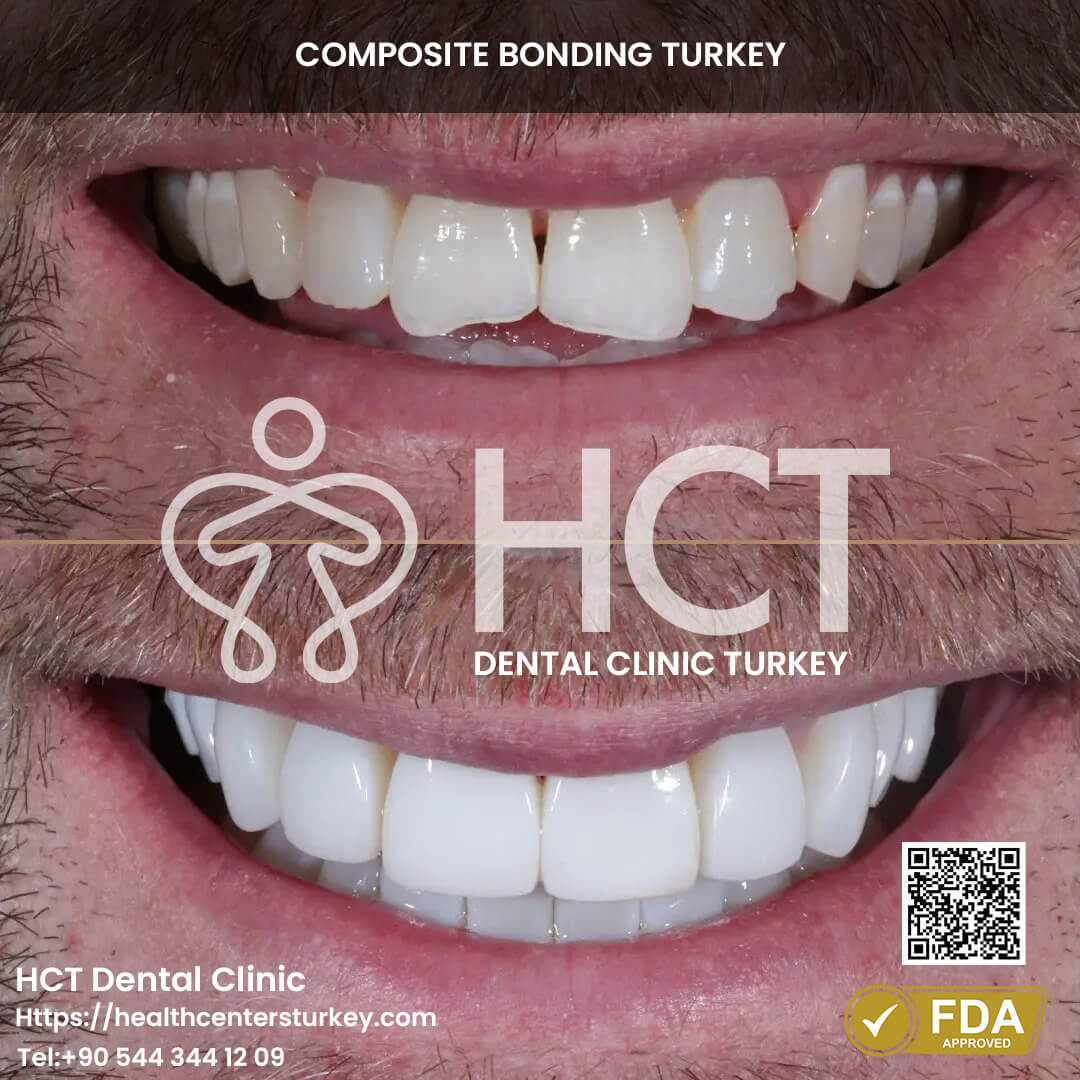Complete Overview about Dental Tourism in Turkey
Dental implants have become a well-liked resolution for those trying to replace missing teeth. Understanding how these implants can affect adjacent teeth is important for anybody considering this process, in addition to for dentists and specialists involved in dental care.

One significant facet is that dental implants are designed to be anchored into the jawbone, which implies they are independent of adjacent teeth. Unlike dental bridges, which regularly require the alteration of neighboring teeth, implants can fill the gap with out compromising the health or structure of these surrounding teeth.
This independence helps maintain the integrity of adjacent teeth. When a tooth is misplaced, there can be a natural tendency for neighboring teeth to tilt or shift into the empty house. Such movement can result in misalignment, which may have an effect on chew and overall oral health. By putting an implant, you effectively prevent this potential shift, selling better alignment in the long run.
Personalized Dental Solutions for Patients Seeking Care in Turkey
Additionally, dental implants help keep bone density in the jaw. A natural tooth root offers stimulation to the surrounding bone, maintaining it healthy and powerful. When a tooth is missing, the bone can start to deteriorate due to lack of stimulation. With a dental implant mimicking a natural root, bone loss may be minimized, which indirectly advantages adjacent teeth by preserving the overall structure of the dental arch.
While dental implants are advantageous, improper placement can impression neighboring teeth. If an implant is positioned too close to a different tooth, it could exert undue strain on that tooth, resulting in discomfort or potential injury. Proper planning and imaging strategies are essential for avoiding such issues.
Your Destination for Quality Dental Care at Affordable Prices
Moreover, maintaining good oral hygiene is essential after receiving an implant. If not correctly cleaned, surrounding teeth may turn into susceptible to dental points such as decay or gum disease. This underscores the importance of diligent oral care following the process to ensure both implants and adjacent teeth stay healthy.
Regular dental check-ups are also important for monitoring the health of surrounding teeth. Dentists can identify any shifts or potential problems early, allowing for well timed interventions. This proactive method ensures that both the implant and adjacent teeth can coexist without issues.
Highlighting the Best Oral Health Solutions from Turkey for Beautiful Smiles
Another consideration is the impression of implants on bite pressure. When a single tooth is missing, the load of chewing could shift to adjacent teeth, potentially leading to put on or pressure. Implants restore proper chew dynamics by redistributing forces within the mouth, which might defend surrounding teeth from undue stress.
Some sufferers may increase considerations in regards to the appearance of dental implants. Well-placed implants can blend seamlessly with present teeth, bettering total aesthetics. In contrast, failing to replace a missing tooth can result in aesthetic points, together with collapsing of facial structure and changes in smile dynamics.
It's also value discussing the psychological elements of dental health. Experiencing tooth loss can adversely affect one’s shallowness and willingness to engage socially. By restoring your smile with implants, you'll have the ability to positively affect not solely your oral health but also your emotional well-being.
Long-term success of dental implants often hinges on various factors, including the patient's health, maintenance habits, and the quality of the preliminary process. If adjacent teeth are wholesome and correctly cared for, the chances are they may proceed to thrive alongside the implants.
Complete Smile Transformation Services Available in Turkey
In conclusion, dental implants play a vital function in not simply restoring individual smiles, but in preserving the health and structure of adjacent teeth. By preventing shifting, maintaining bone density, and redistributing bite forces, implants can be sure that surrounding teeth remain in optimal condition. Proper placement, hygiene, and regular dental visits can further enhance the benefits of dental More hints implants, resulting in a more healthy, extra confident smile for years to return.
- Dental implants might help keep the alignment of adjacent teeth by providing a stable anchor, preventing adjacent teeth from shifting into the gap left by a missing tooth.
- The presence of an implant could stimulate bone development within the jaw, serving to to protect the overall structure and integrity of the adjacent teeth.
- Unlike traditional bridges, implants do not require alteration of surrounding teeth, thus preserving their strength and anatomy.
- Implants can improve the distribution of chunk forces evenly throughout the dental arch, decreasing the stress on neighboring teeth during chewing.
- A well-integrated dental implant can lower the risk of bone loss within the space surrounding adjacent teeth, contributing to their long-term health and stability.
- The aesthetics of adjacent teeth could be improved as a end result of help provided by implants, which might result in better overall beauty outcomes.
- With correct placement, dental implants can prevent gum recession round adjacent teeth by maintaining adequate dental structure.
- Implants may help mitigate the risks of periodontal disease in nearby teeth by selling healthy gum tissue and offering a washable floor.
- Long-term success of dental implants can result in improved oral hygiene routines, which in flip advantages the health of surrounding teeth.
- The improved useful ability of an implant can encourage sufferers to chew more effectively, thus growing saliva production and aiding in the safety of adjacent dental tissues.undefinedHow do dental implants have an effect on adjacent teeth?
What are dental implants and how do they work together with adjacent teeth?undefinedDental implants are synthetic tooth roots which are surgically placed into the jawbone. They present a secure foundation for replacement teeth whereas ensuring minimal disruption to adjacent teeth, preserving their integrity and alignment. Latest Advances in Dental Implants in Turkey.
Complete Guide to Dental Implants and Cosmetic Treatments in Turkey
Can dental implants trigger problems for nearby natural teeth?undefinedGenerally, dental implants do not hurt adjacent natural teeth. However, if the implant isn't placed accurately or if there’s inadequate oral hygiene, it may result in problems such as adjacent tooth decay or gum disease.

Will getting a dental implant change the way in which my adjacent teeth feel?undefinedMost patients report no change in the sensation of adjacent teeth after implant placement. However, it could take a while to regulate to the presence of the implant, much like how one might adapt to other dental restorations.
Can dental implants help preserve the health of adjacent teeth?undefinedYes, dental implants can help preserve the health of adjacent teeth by stopping bone loss that may occur after tooth loss. This preservation supports the alignment of nearby teeth, lowering the chance of shifting or misalignment.
Uncover Cost-Effective Dental Care in Turkey
Do I want to switch adjacent teeth when getting an implant?undefinedTypically, adjacent teeth do not need alteration when placing an implant. This is doubtless certainly one of the advantages of dental implants over traditional bridges, which regularly require reshaping adjacent teeth for assist.
How does the healing process of an implant have an effect on close by teeth?undefinedThe healing process entails osseointegration, where the implant fuses with the jawbone. During this time, adjacent teeth remain unaffected and retain their operate, although it’s essential to follow post-operative care suggestions. Why Choose Dental Tourism in Turkey for Treatment.
Elevate Your Teeth through Modern Dental Practices in Turkey
Can dental implants lead to bone loss around adjacent teeth?undefinedIf dental implants are positioned properly and cared for adequately, they should not result in bone loss around adjacent teeth. In truth, they might help stimulate bone growth, combating the natural bone loss that usually follows tooth extraction.
What precautions ought to I take to protect adjacent teeth after getting an implant?undefinedRoutine dental hygiene, together with brushing and flossing, along with common dental check-ups, is essential. Avoiding hard meals and following your dentist’s aftercare instructions may even shield each the implant and adjacent teeth.
Is it widespread for pop over to this site adjacent teeth to shift after an implant is placed?undefinedIt's not typical for adjacent teeth to shift after an implant placement, especially when the implant is positioned correctly and maintained correctly. If there’s any movement, it could be due to different underlying issues that must be evaluated by a dental professional.